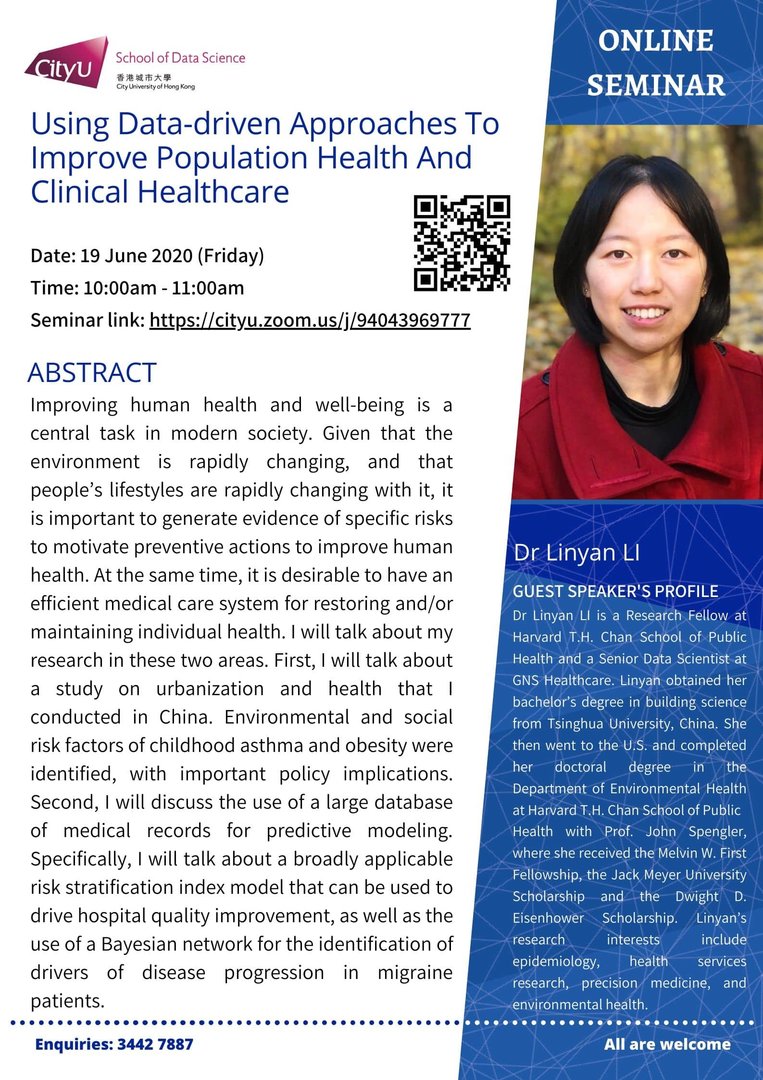
Improving human health and well-being is a central task in modern society. Given that the environment is rapidly changing, and that people's lifestyles are rapidly changing with it, it is important to generate evidence of specific risks to motivate preventive actions to improve human health. At the same time, it is desirable to have an efficient medical care system for restoring and/or maintaining individual health. I will talk about my research in these two areas. First, I will talk about a study on urbanization and health that I conducted in China. Environmental and social risk factors of childhood asthma and obesity were identified, with important policy implications. Second, I will discuss the use of a large database of medical records for predictive modeling. Specifically, I will talk about a broadly applicable risk stratification index model that can be used to drive hospital quality improvement, as well as the use of a Bayesian network for the identification of drivers of disease progression in migraine
patients.
Speaker: Dr Linyan LI
Date: 19 June 2020 (Fri)
Time: 10:00am - 11:00am
Poster: Click here
Latest Seminar
Biography
Dr Linyan Li is a Research Fellow at Harvard T.H. Chan School of Puboic Health and a Senior Data Scientist at GNS Healthcare. Linyan obtained her bachelor's degree in building science from Tsinghua University, China. She then went to the U.S. and completed her doctoral degree in the Department of Environmental Health at Harvard T.H. Chan School of Public Health with Prof. John Spengler, where she received the Melvin W. First Fellowship, the Jack Meyer University Scholarship and the Dwight D. Eisenhower Scholarship. Linyan's research interests include epidemiology, health services research, precision medicine, and environmental health.